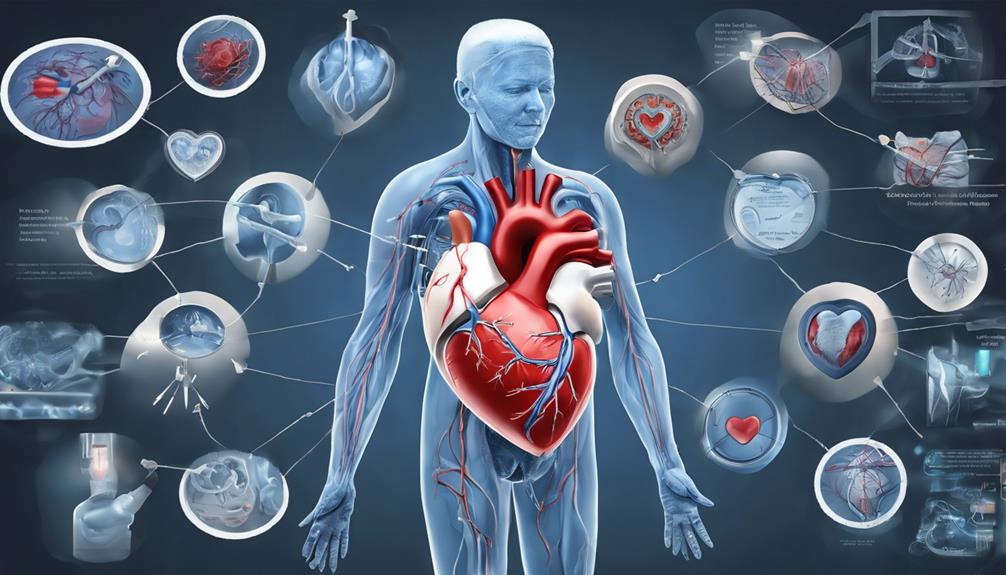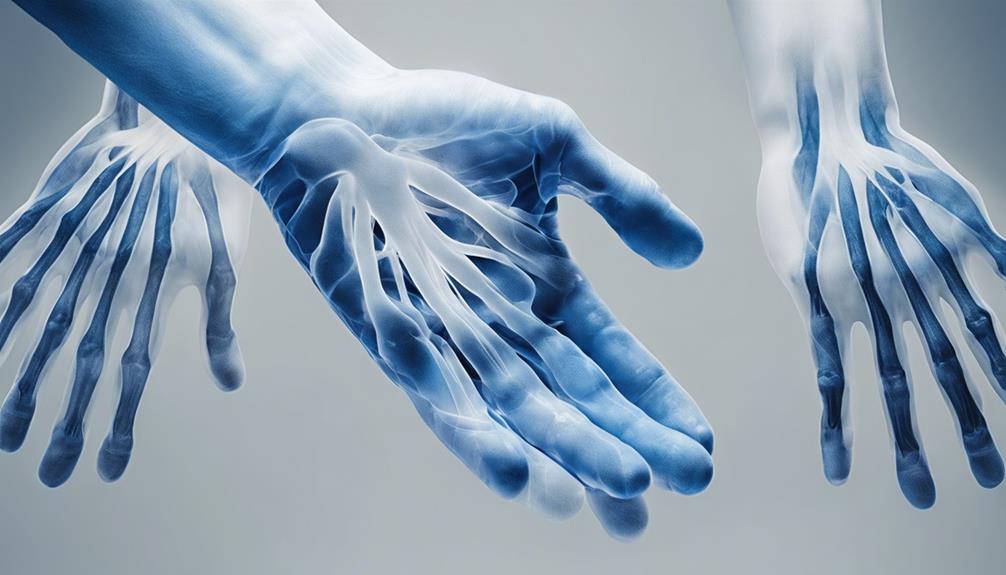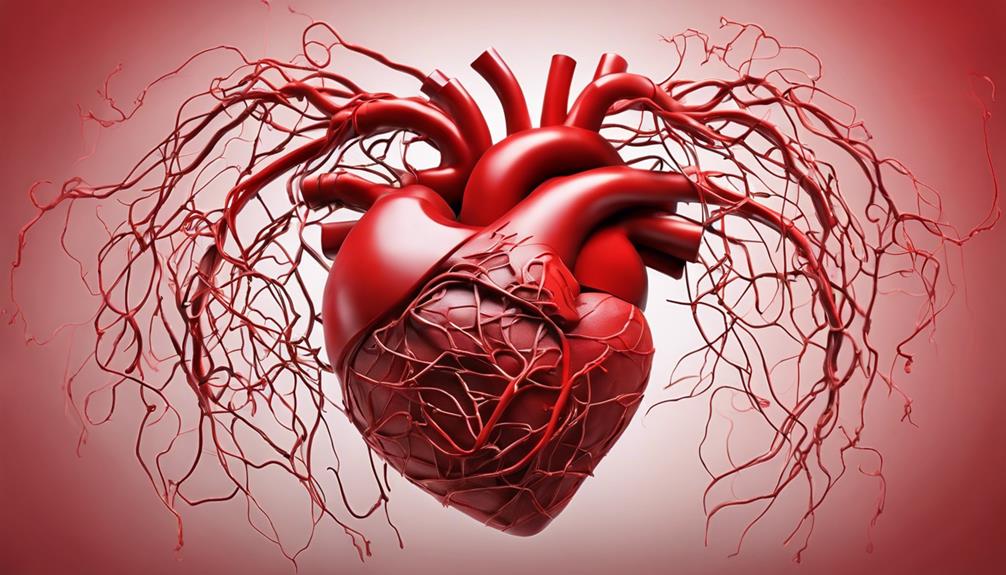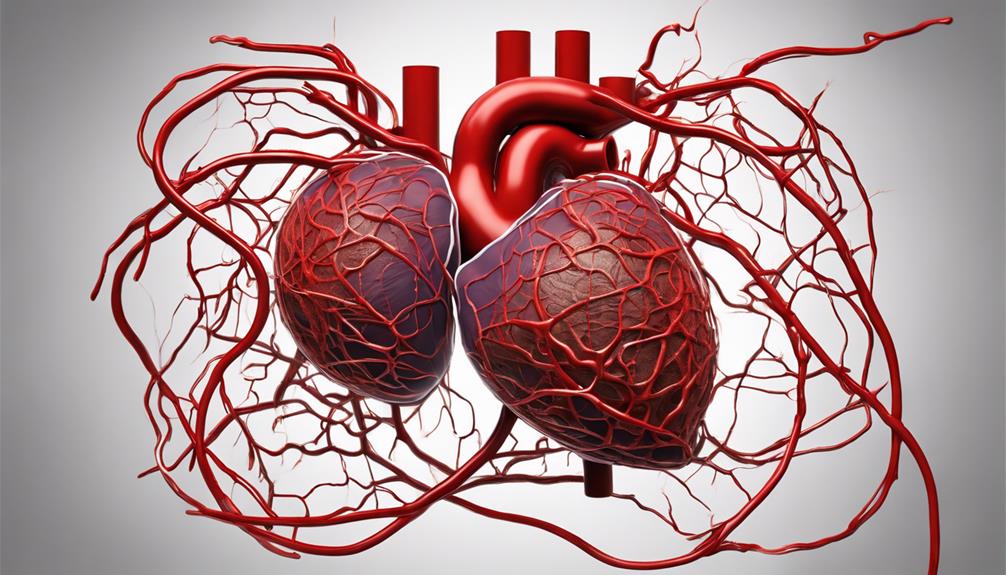We are investigating groundbreaking methods that are transforming the treatment of heart valve disease, reducing the need for surgeries. By utilizing innovative techniques like MitraClip and TAVR, as well as the development of cutting-edge technologies such as the GDS AccuCinch System and tricuspid clip, the realm of noninvasive procedures is quickly growing.
These advancements hold promise for patients seeking effective alternatives to traditional surgical methods. Curious to discover how these breakthroughs are reshaping the field of cardiovascular medicine?
Key Takeaways
- Non-surgical options include Mitral Clip and TAVR.
- Lifestyle changes aid heart health management.
- Medications play a vital role in treating heart valve conditions.
- Innovative techniques like TAVR revolutionize heart valve replacement.
Non-Surgical Options for Heart Valve Disease
Non-Surgical options for heart valve disease offer viable alternatives to traditional surgical interventions, presenting innovative approaches for managing various valve conditions. For mitral valve regurgitation, transcatheter procedures like the Mitral Clip and GDS AccuCinch System provide minimally invasive options that can repair the valve without open-heart surgery.
Similarly, in aortic regurgitation, Transcatheter Aortic Valve Replacement (TAVR) serves as a less invasive method compared to traditional surgery. The availability of the tricuspid clip for treating tricuspid regurgitation further expands the non-surgical options for patients with valve diseases.
Additionally, medications play a crucial role in managing heart valve diseases noninvasively, aiding in symptom control and disease management. Furthermore, ongoing clinical trials are continuously exploring and refining alternative noninvasive treatments for various heart valve conditions, promising more options in the future for individuals seeking effective and less invasive interventions.
Lifestyle Changes for Heart Health

To promote optimal heart health, individuals can implement lifestyle changes that encompass heart-healthy eating habits, weight management, stress reduction techniques, regular physical activity, and tobacco cessation.
Maintaining a diet rich in fruits, vegetables, whole grains, and lean proteins can benefit heart valve health by providing essential nutrients and reducing inflammation. Weight management through portion control and regular exercise helps lessen the strain on the heart valves, optimizing blood flow and overall cardiac function.
Stress reduction techniques like deep breathing or meditation aid in lowering high blood pressure, benefiting heart valves by improving cardiovascular health. Engaging in activities such as walking, swimming, or cycling strengthens the heart muscle, enhancing its efficiency.
Quitting smoking and avoiding secondhand smoke are crucial steps in reducing the risk of heart valve disease progression. These lifestyle changes can significantly contribute to heart health and may complement minimally invasive procedures like the TAVR procedure for heart valve repair.
Medication Treatments for Heart Valves
Medications play a crucial role in managing heart valve disease by addressing various symptoms and complications associated with the condition.
Medication Treatments for Heart Valves:
- Diuretics and Vasodilators: These medications are commonly used to control high blood pressure in patients with valve diseases.
- Heart Rate Control Medications: Help regulate the heart's rhythm and improve symptoms related to heart valve issues.
- Blood Thinners: Prescribed to prevent blood clots in patients with heart valve disease, reducing the risk of complications.
- Antibiotics: Necessary to treat infections or prevent rheumatic fever, which can impact heart valves.
Techniques for Heart Valve Repair

Valve repair techniques encompass a range of procedures aimed at addressing structural abnormalities and functional issues in the heart's valves. One procedure, transcatheter aortic valve replacement (TAVR), is a minimally invasive approach for individuals with aortic stenosis who are at high risk for traditional open-heart surgery.
For mitral regurgitation, the AccuCinch System can be utilized to reshape the mitral valve and reduce leakage. Repairing supporting structures or strengthening the valve base is crucial in certain valve repair procedures to ensure long-term success.
Noninvasive options like the MitraClip and TAVR provide effective treatment for leaky heart valves without the need for surgery. These techniques offer patients the benefits of reduced recovery times, shorter hospital stays, and improved quality of life.
Innovations in Heart Valve Replacement
Advancements in heart valve replacement techniques have revolutionized the field of cardiac care, offering minimally invasive alternatives with reduced risks and improved outcomes. When considering innovations in heart valve replacement, one can't overlook the remarkable technique of transcatheter aortic valve implantation (TAVR).
- TAVR Procedure: TAVR is a minimally invasive procedure for aortic valve replacement that involves inserting a collapsible valve through an artery, allowing for improved blood flow and efficient pumping of blood.
- Benefits Over Surgery: TAVR provides a viable alternative to open-heart surgery, with lower risks of complications such as bleeding, stroke, and irregular heart rhythm, ultimately leading to faster recovery times and improved quality of life.
- Reduced Anesthesia Requirement: The TAVR procedure can often be performed under light sedation, reducing the need for general anesthesia and associated risks, making it a safer option for many patients.
- Improved Life Expectancy: Patients undergoing TAVR, especially those considered high risk for traditional surgery due to conditions like aortic stenosis or valve leakage, experience enhanced life expectancy and overall outcomes.
Frequently Asked Questions
Can a Heart Valve Problem Be Treated With Medication?
Yes, a heart valve problem can be managed with medications to alleviate symptoms and improve heart function.
Medications like blood pressure drugs, diuretics, and blood thinners are often prescribed. They help control symptoms, reduce strain on the heart, and prevent complications like blood clots.
While medication can enhance quality of life, severe cases may necessitate surgical intervention for a definitive treatment.
Can Heart Valve Be Repaired Without Surgery?
Yes, heart valves can be repaired without surgery. Catheter-based procedures like MitraClip and GDS AccuCinch offer effective alternatives for addressing valve issues, such as mitral regurgitation, without the need for open-heart surgery.
These minimally invasive techniques focus on improving heart function by repairing valve leakage. Advances in technology have made it possible to repair heart valves without the risks associated with traditional surgery, providing valuable treatment options for patients.
What Is the Life Expectancy of a Person With a Heart Valve Problem?
We believe a person's life expectancy with a heart valve problem varies based on condition severity and treatment effectiveness. Proper management, including lifestyle adjustments, medications, and timely interventions, can help many individuals live a normal lifespan.
However, untreated severe heart valve disease can impact life expectancy and raise the risk of complications. Advancements in non-surgical treatments have improved outcomes for patients. Regular monitoring and adherence to treatment recommendations are crucial for enhancing life expectancy.
How Do You Treat Heart Valve Disease Naturally?
We can treat heart valve disease naturally through lifestyle changes. Regular exercise, heart-healthy diet, stress management, avoiding tobacco, limiting alcohol, and monitoring health metrics are key. These methods can improve heart valve function and overall heart health.
Engaging in activities like walking, yoga, and meditation can support our well-being. By following these practices, we can enhance our heart's condition and potentially mitigate the progression of heart valve disease.
Conclusion
In conclusion, while surgery has long been the traditional approach for treating heart valve disease, non-surgical options are rapidly advancing. It's ironic that in the realm of heart health, the most effective treatments may now involve no incisions or long recovery times.
With innovative technologies and minimally invasive procedures, managing heart valve conditions without surgery is becoming a viable and successful option for many patients. The future of heart valve disease treatment is truly changing before our eyes.









